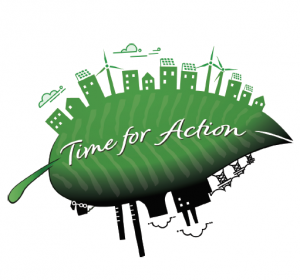
Background Information
Republic of Serbia is Party to the United Nations Framework Convention on Climate Change (UNFCCC) since 2001 as non-Annex 1 Party to the Kyoto Protocol and is obliged to submit national communications and biennial update reports to the UNFCCC on a regular basis. Serbia submitted its Initial National Communication in 2010, First Biennial Update Report in 2016 and Second National Communication in 2017.
Moreover, the Republic of Serbia became a Party to the Paris Climate Agreement in 2017. Previously, Serbia submitted its Intended Nationally Determined Contribution (INDC) to the UNFCCC in mid-2015 prior to the UNFCCC COP21 with a pledge to reduce its GHG emission by 9,8% from the 1990 level by 2030. Also, Serbia’s INDCs contain adaptation related part due to decades long negative impacts of the climate change and vulnerability of the country. This pledge/NDC will be achieved by reducing emissions in key sectors, such as energy production/consumption, agriculture, waste management, transport, and forestry.
About the Project
The project is supporting the fulfillment of UNFCCC reporting requirements, and the establishment of a regular biennial reporting cycle to UNFCCC (BURs to be submitted biennially, and NCs every 4 years), while improving information exchange and partnership between stakeholders (Govt, research/academia, CSOs, businesses, etc.) in the climate change area. The project will enable the Republic of Serbia to prepare and submit its Second Biennial Update Report (2BUR) and Third National Communication (3NC) to the UN Framework Convention on Climate Change (UNFCCC).
Duration: January 2018 – December 2021
Donor: Global Environmental Facility
Total Project Amount: $ 852,000
Expected Outcomes
GHG inventories and National Inventory Reports for relevant years (2010-2018) prepared;
Mitigation scenarios in accordance with relevant strategic directions and requirements of the Paris agreement developed;
Climate Change scenarios, vulnerability assessment, cost-benefit analyses, losses and damage assessment of adaptation measures developed;
Sectoral mitigation and adaptation measures in line with UNFCCC, PA and EU accession priorities identified and selected;
The level of implementation of the mitigation/adaptation measures proposed in previous BURs/NCs assessed;
Coordination between the climate change and disaster risk reduction (DRR) policies and measures (national and local level assessments and programming, damage and losses assessment, risk insurance etc.) improved
Climate change issues integrated into other sectorial policies (Agriculture, Water Management, Forestry, Biodiversity, Energy, Transport, Waste Management, Industry etc.)
Institutional capacities further strengthened, and awareness raised related to climate change issues;
Second Biennial Update Report and Third National Communication submitted to the UNFCCC.
